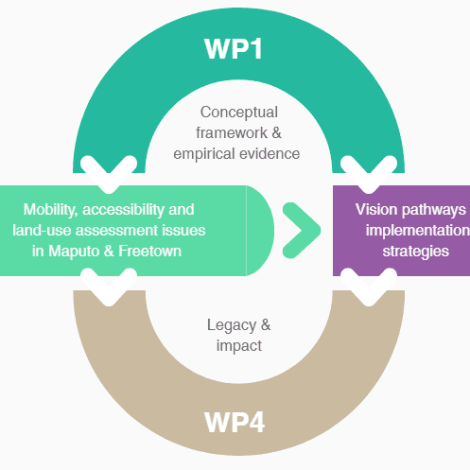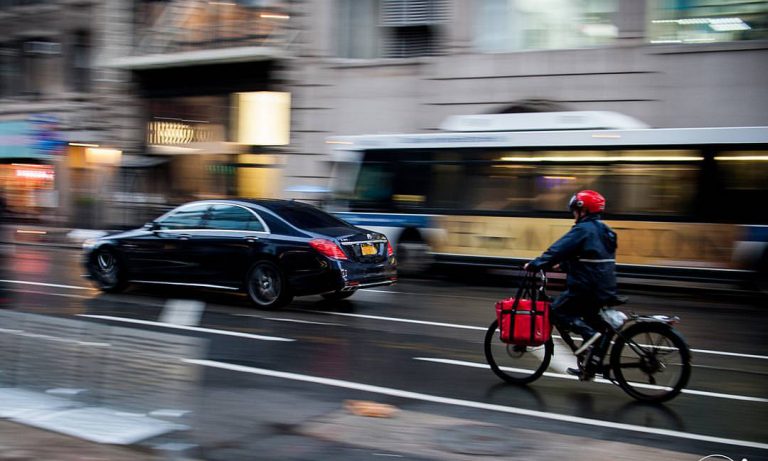E4C’s Contributing Editor Dr. Daniel Oviedo, a lecturer in Transport and Urban Development Planning at the Development Planning Unit of University College London, is creating work packages as resources for the Transition to Sustainable Urban Mobility, or T-SUM, project. Earlier in December the project hosted a two-day workshop called Future Freetown: A Vision to Improve Mobility, held in Freetown, Sierra Leone.
T-SUM summed up
T-SUM is an interdisciplinary and cross-sector collaborative research project that identifies the means to achieve sustainability in inclusive transport and land use development in growing cities in the Global South. Freetown is a case study in rapid urban changes and increase in the use of motorized transport while dealing with environmental risks and social inequalities. The project fosters new models of development based on a sustainable mobility trajectory through institutional and governance processes.
The program is funded by the Economic and Social Research Council and led by the UCL Centre of Transport Studies and the Bartlett Development Planning Unit in partnership with The Sierra Leone Urban Research Centre.
T-SUM’s three core objectives
- To develop a conceptual framework based on alternative development trajectories for (un)sustainable urban transport, drawing on data from cities across the Global North and the Global South;
- To assemble and co-produce evidence by interrogating urban transport and land use data in two rapidly developing cities in the region, Maputo and Freetown;
- To initiate participative governance processes to foster new models of development based on a sustainable mobility trajectory, through evidence-based engagement with public and professional stakeholders across levels of governance and sectors.
Freetown serves as an example of typical urban development trajectories that are concurrently facing the twin challenges of integrating the built and social fabric alongside attaining lasting and inclusive economic growth. The project has therefore focused on analyzing dynamics at the city level in the construction of city profile for Freetown from the perspective of urban mobility and the analysis of 4 specific case studies in Freetown with different levels of car use and accessibility: Cline Town, Moyiba, South Ridge and Brookfields.
T-SUM focuses on the co-production of knowledge between local and international partners in academia, government and the third sector to generate a conceptual framework, evidence base and practice experiences for accelerating sustainable and inclusive mobility development trajectories in Sub-Saharan African cities.
The main beneficiaries will be the inhabitants from Freetown and their periphery. Learnings on the concepts and methods from the workshops and the pilot study will be shared with other growing economies across the Global South.
For more information, please contact SLURC by email: info@slurc.org, or phone:+232 22 22 09 86.


The SDG must be met and in order to do so we must rethink transportation. There is neither the space or time to implement many of the plans now mooted. They should be discarded for those reasons. Pollution and time suggests that the Stirlling engine should replace the internal combustion engine since it can use the existing supply infrastructure and evolve as the world shifts away from fossil fuels. The Stirling was tested by NASA in 1992
https://www.youtube.com/watch?v=KbnGlcQiL1c
It is a simple rugged engine suitable for use anywhere within the tropics. https://www.youtube.com/watch?v=_c7BGP94eHI
Retro-fitting these engines to automobiles globally will create the jobs and growth for a sustainable future.